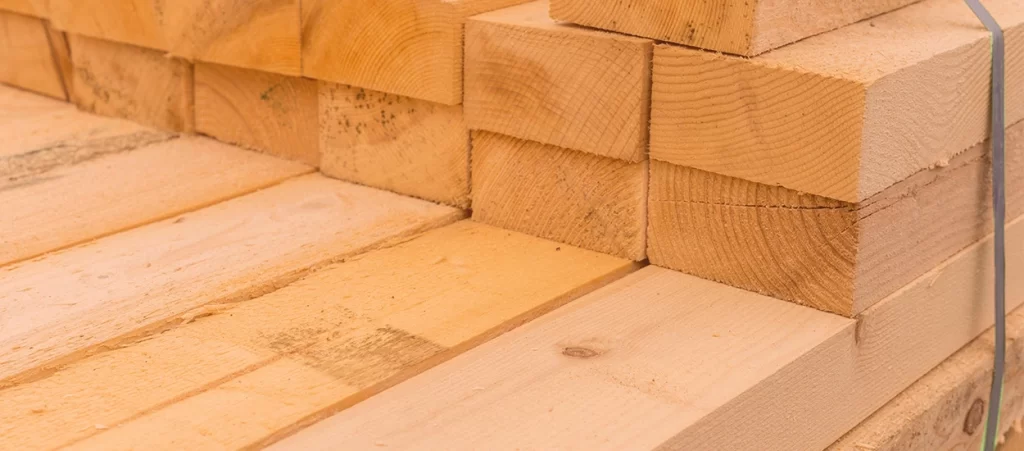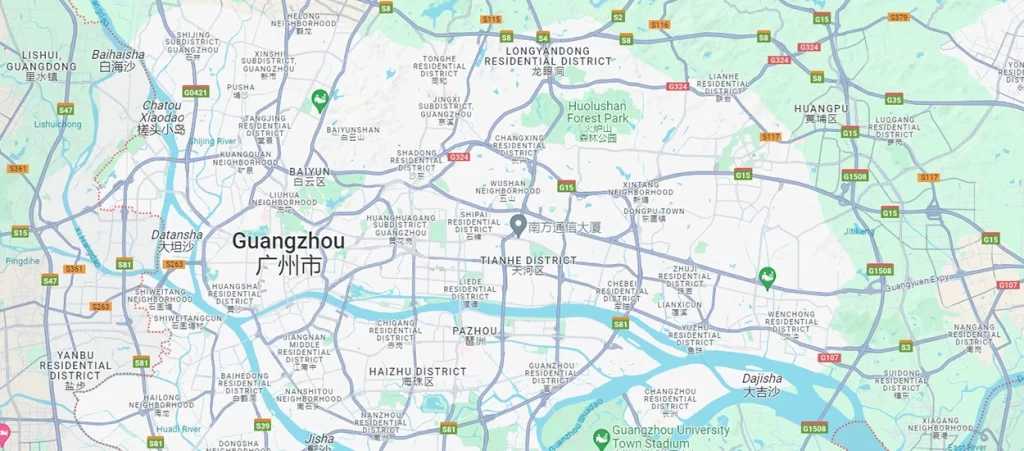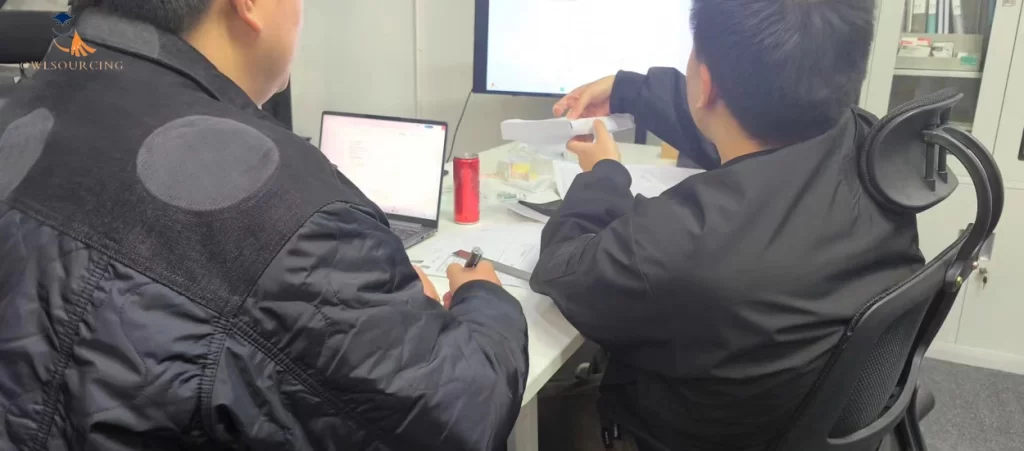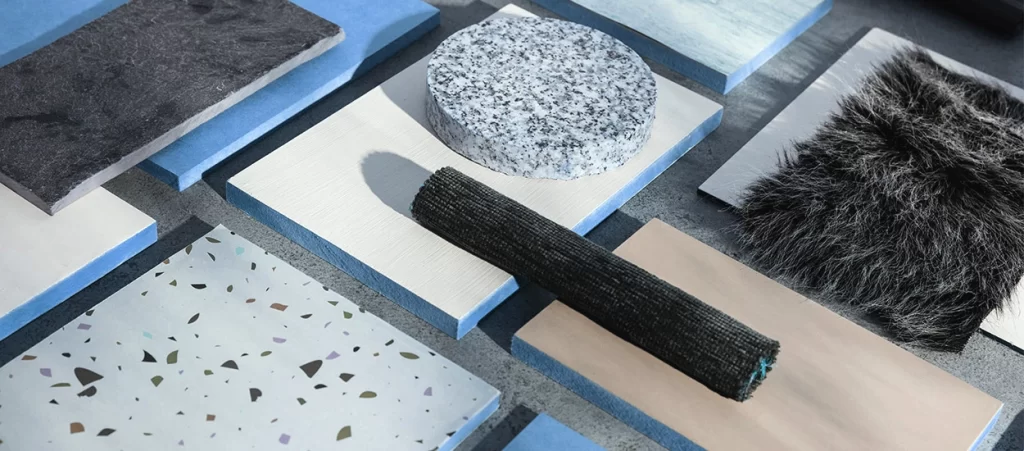Estimated reading time: 12 minutes
Do you know? Importing building materials from China can save you almost 30% to 50% in costs. If you read this guide about importing building materials, you’ll learn how to find a reliable building materials supplier. Please remember, a trustworthy partner offers more than just short-term gains. Their value is immeasurable.
In this blog, you’ll find all the information you need about importing building materials from China. Moreover, we’ll share some handy tips on selecting the right materials. Let’s discuss them from A to Z.
Table of Contents
ToggleWhat are the Benefits of Importing Building Materials from China?
In 2022, China was the country with the highest value of exports of cement, concrete, gypsum, asphalt, stone and other mineral building materials in the world. China’s exports of articles of cement, concrete, or artificial stone amounted to five billion U.S. dollars that year.
According to Statista, we can see that China is the world’s largest exporter of building materials. This also means building materials from China are incredibly popular.
But why choose to import building materials from China? Because of these three main reasons:

1. Lower Manufacturing Costs
According to statistics, labor costs in China are much lower than in the U.S. In Chinese manufacturing, the average hourly wage might be just $4 to $6, while in the USA, it’s around $20 to $30. That’s nearly five times higher!
Labor costs typically affect around 20% of the total manufacturing cost.
China has a population of about 1.4 billion, which means China has a huge workforce. This helps in dedicating a large labor force to produce building materials, ensuring the ability to meet high product demands.
Chinese workers are incredibly hardworking and always thinking about how to do better. They’re willing to work longer hours for you at just one-fifth the cost of American labor. Getting what you need at a low cost. How can you say no to that?
2. Wider Range of Products

As the center of global manufacturing, China excels in producing a variety of products. This includes basic construction materials like iron and cement, as well as decorative materials such as glass and ceramics. Chinese manufacturers are rich in experience when it comes to making building materials. A vast selection of products is available for you to choose from, which is another benefit of importing building materials from China. There is a wider range of options available.
With more options at your disposal, you can find more competitive prices in China. In addition to this, you won’t have to worry about not being able to source products needed for your target market. Many buyers miss out on opportunities simply because they can’t find the types of products they want.
3. Great Product Quality
Why is the quality of building materials manufactured in China superior to those produced in other countries?

In China’s building material sector, stringent administrative standards are mandated for quality assurance. Each product undergoes necessary licensing protocols.
The AQSIQ is a governmental body, that oversees these product inspections, applying distinct regulations for various building materials.
Several Chinese cities, known as manufacturing powerhouses, have enacted stricter local standards. These require comprehensive material lists, compliance certificates from renowned testing agencies, mandatory product licensing, documentation for international approval, and assurances of product quality.
What Types of Building Materials Are Worth Importing from China?
My answer is: Everything.
As we mentioned earlier, there are a variety of products available in China. Whether it’s concrete, steel, or decorative materials like tiles and glass. Whatever you need, you can find it in China. Below is a type list of building materials:
a) Importing Construction Materials from China

- Steel: Rebar, beams, steel plates.
In 2022, China was one of the countries with the highest value of exports of selected iron and steel building materials. China exported 19 billion U.S. dollars worth of structures and parts of structures. The following countries in the ranking were Germany and Poland. China was also at the top of the ranking of global mineral building material exporters.
From: Statista
- Concrete: Precast concrete components, cement.
- Timber: Plywood, wooden beams, engineered wood.
b) Importing Decorative Materials from China
- Tiles and Stones: Floor tiles, wall tiles, marble, granite.
- Paints and Wallpapers: Various interior and exterior paints, and decorative wallpapers.
- Glass Products: Flat glass, tempered glass, decorative glass.
c) Importing Functional Materials from China
- Insulation and Soundproofing: Insulation boards, soundproofing cotton, etc.
- Waterproofing Materials: Waterproof membranes, waterproof coatings.
d) Importing Doors, Windows, and Accessories from China

- Aluminum or uPVC doors and windows.
- Door and window hardware accessories.
e) Importing Eco and Green Building Materials from China
- Solar panels, eco-friendly materials.
- Sustainable materials like bamboo.
How to Find Building Materials Suppliers in China?

There are many building material manufacturers in China. But how do you find them? And how do you choose the supplier that’s best for you? In this section, we’ll provide you with methods to do just that.
Google Search
Google Search is the fastest way to find Chinese suppliers. When you search on Google, you’ll come across millions of results for building material suppliers. However, this can be overwhelming, as it’s challenging to find trustworthy sources among the available options.
This doesn’t mean you can’t find reliable Chinese building material wholesale suppliers on Google. But they might be on the farther pages of the search results.
You can narrow down your Google search by looking for online directories of Chinese building materials. These online directories might be a better way to find Chinese suppliers. Most of these Chinese supplier online directories conduct investigations and verifications before listing a supplier. Online directories can assist you in identifying credible options.
Online B2B Platforms

You can find Chinese suppliers on online platforms, such as Alibaba. Alibaba is the world’s largest online directory for wholesale suppliers. It boasts over 8 million active sellers and around 280 million active buyers.
Alibaba lists many building material suppliers from China. When you use Alibaba to meet your needs from China, you can work directly with manufacturers. This means you can be involved in the product’s design, manufacturing, and shipping methods.
Note: You must be aware that through Alibaba, you’ll be dealing with a third-party manufacturer currently listed under Alibaba.
Sometimes you might find sellers displaying very cheap building materials on their websites, but when you intend to place an order, the quoted price differs, as the price marked on Alibaba is not the sale amount. You need to get the supplier to quote based on your requirements.
China wholesale market
More and more construction companies and retailers are starting to rely on China for building materials that are of good quality, well-designed, and affordable. Many buyers prefer to purchase directly from manufacturers or attend the Canton Fair. However, visiting Chinese wholesale markets is another viable option.
1. China Ceramics City (Guangdong Province)
Location: 2 Jiangwan 3rd Rd, Chancheng District, Foshan, Guangdong Province, China

China Ceramics City is the first information service and trade platform of this magnitude for ceramic and bathroom fittings in China. Combining exhibition, trading, and business services, China Ceramics City houses over 300 brands, a combination of the best and most expensive ceramic and bathroom products in China and famous foreign brands.
2. Huayi International Decoration Expo Market (Guangdong Province)
Location: Wugang Road, West Kuiqi, Chancheng, Foshan, Guangdong, China
This market features mid to high-end quality products. Most of the exhibitors are manufacturers. This huge mecca of building material supply includes products for your construction and renovation needs.
Visiting Chinese markets allows you to touch with these products. And you can more easily compare prices and secure the lowest cost for your purchases.
However, during this process, there might be some language barriers, as few Chinese suppliers can speak English fluently. When you prepare to travel to China, please consider this factor. If necessary, think about hiring a translator.
Which Types of Building Material Suppliers Are the Best Fit?
When considering importing building materials from China, you need to hire someone who is honest, qualified, experienced, and understands the rules of your country. Maybe you could directly contact Chinese manufacturers or look for suppliers on online B2B platforms like Alibaba.
However, not all these options may suit you. Wondering which one is the best fit for you? Here’s what you need to know. We have listed categories of building material suppliers and analyzed their pros and cons to help you make an informed choice.
| Types of Building Material Suppliers | Advantages | Disadvantages |
| Manufacturers | 1. Direct purchase reduces costs 2. Consistent quality over time | More complex communication and logistics |
| Trading Companies | 1. Wide range of products 2. Good logistics and export support | 1. Higher prices 2. Quality control depends on manufacturers |
| Online B2B Marketplaces | Price comparison and buyer protection | 1. Higher prices 2. Quality control depends on the manufacturers |
| Specialized Manufacturers | High-quality specific products | 1. Limited product range 2. May require high-order quantities |
Of course, you can also try contacting China sourcing agents. This can save you even more money. They use their extensive sourcing experience to help you find the most suitable suppliers in China and get the best products at the lowest prices.
When sourcing in China, you might encounter suppliers who don’t speak English. This makes it hard for them to understand your product needs. But now, you don’t have to worry about that anymore. Their offices are in China and can assist you in communicating with building material suppliers.
Moreover, I have a question for you: “Do you verify the legitimacy of suppliers before collaborating with them?“
Trust is mutual, but it requires both parties to actively maintain the relationship.
However, you can’t be sure that Chinese suppliers won’t deceive you. Some suppliers are “smart”. I believe you can understand why I use the quotes. Yes, some Chinese suppliers are bad. They might cheat you with inferior products, reduce the quantity, or even fail to provide after-sales service! They just want your money!
Contact Owlsourcing. We firmly believe that trust is the key to cooperation. Before sourcing, we will verify Chinese suppliers’ legitimacy and provide real photos or videos during the sourcing process to ensure customer satisfaction with our services. We hope all our clients can smile when working with us.

Owlsourcing Action,
Members of Owlsourcing are discussing product specific data.
What Are Some Tips for Selecting Building Materials?
When you face a variety of building materials in the Chinese market, do you know how to select? In this part of the article, here are some tips on selecting building materials for your reference:
1. Save money by buying in bulk

Most suppliers offer discounts for bulk purchases, especially Chinese suppliers on Alibaba. They favor customers who wholesale their products. This can save you on shipping costs, while also being profitable for the suppliers.
It’s a win-win situation, how delightful!
Note: You need to understand the supplier’s minimum order quantity (MOQ) in advance. Many suppliers won’t sell products in too small quantities, as they wouldn’t make a profit otherwise.
2. Where to buy quality lighting?
The prices of these lighting fixtures might be a bit high, but they can add aesthetic value. Many Chinese retailers sell a variety of lighting styles. However, if you’re considering buying from China, think about visiting local markets. This way, you can personally inspect the quality of the products.
For further information, you can read this article: Importing LED Lights from China
3. How to choose tile, marble, or wood flooring?

| Flooring Type | Pros | Cons |
| Tile | 1. Durable and long-lasting 2. Water-resistant 3. Easy to clean and maintain 4. Variety of designs | 1. Hard and cold underfoot 2. Can be slippery when wet 3. Grout lines can collect dirt and grime |
| Marble | 1. Elegant and high-end appearance 2. Unique patterns and colors 3. Naturally cool in hot climates | 1. Expensive 2. Prone to scratches and stains 3. Requires regular maintenance and sealing |
| Wood | 1. Warm and inviting aesthetic 2. Timeless appeal 3. Can be refinished 4. Good insulation | 1. Susceptible to water damage 2. Can scratch and dent 3. May fade or discolor over time |
Additional information:
a) Tile Flooring: Ideal for high-moisture areas like bathrooms and kitchens.
b) Marble Flooring: Best suited for areas where aesthetics are a priority, and usage is less intense.
c) Wood Flooring: Great for living areas and bedrooms where comfort and warmth are desired.
More Related Articles:
- Import LED Lights from China
- Find China Factory: Top 10 Industrial Clusters Cities and Wholesale Markets in South of China
- How to Verify Chinese Supplier’s Legitimacy
- Quality Control in China
- Best-Selling Amazon Products You Can Import from China
Final Thoughts on Importing Building Materials from China
Are you ready to import building materials from China? Once you fully understand the process, you’ll realize it’s a very smart decision. Sourcing products from China can bring you many benefits. Of course, you need to choose the right building material supplier, or you might end up with bad-quality products or insufficient quantities.
Sourcing products isn’t just about giving money to these suppliers to solve all problems.
No worries, you can contact us. Owlsourcing can help you reduce the cost of importing building materials from China. You can email us at [email protected] with your project details, and we’ll get back to you promptly.



2 thoughts on “How to Import Building Materials From China?”
Great article on importing building materials from China! It answered many of my questions. I’m curious about quality control during the import process. Could you share tips on ensuring the materials meet the required standards? Thanks a bunch!
Hi Michael. Thank you for your affirmation and questions! Regarding the quality control of building materials imported from China, it is indeed a very important topic. I suggest that you can ensure quality standards through the following aspects: (1) Select reputable suppliers; (2) Clarify quality standards; (3) Conduct sample inspection; (4) On-site inspection and supervision. You can also contact us. We provide quality control services; (5) Understand relevant regulations and standards.
Hope these suggestions are helpful. If you have additional questions or need more detailed advice, feel free to ask. Good luck with your import matters!